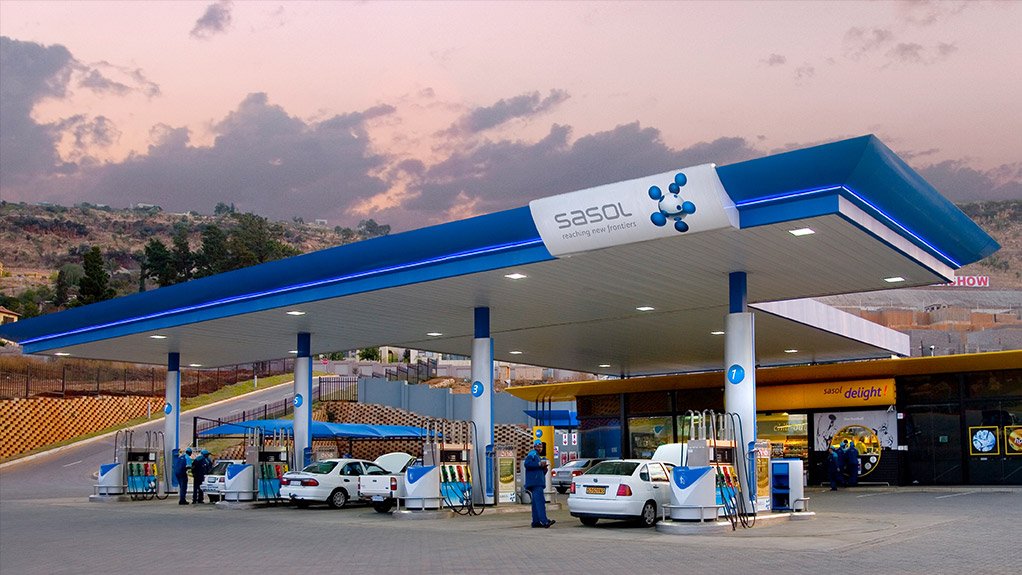Energy and chemicals group Sasol has handed over 285 ha of agricultural land to the Department of Agriculture, Land Reform and Rural Development (DALRRD) to support the further development of emerging farmers.
Agriculture, Land Reform and Rural Development Minister Thoko Didiza officiated the handover on August 30 in Secunda, Mpumalanga, before handing the land over to the provincial arm of the department.
Sasol human resources and stakeholder relations executive VP Charlotte Mokoena said the decision to confer Esperanza to DALRRD, under the auspices of a 99-year lease, was informed by Sasol’s vision of a just transition by growing shared value through the development of key economic growth sectors, such as agriculture.
“We see the vision of Sasol’s just transition as a shared value proposition that will come to life through the inclusive transformation of our business, people and society. This is in line with our core value of care, which we demonstrate through caring deeply for our people, planet and communities.”
Sasol acquired Esperanza farm in 1980 and used it mainly for the establishment of the Sasol Secunda factory site.
The land was then used by the Esperanza Trust to promote vegetable and chicken farming by community members before being leased to the Govan Mbeki municipality after the Trust dissolved. Part of it is currently used for agricultural and manufacturing activities.
“What is important is the approach of this programme –you could have given these young people the piece of land and disappeared, but you also trained them and gave them starter packs which are necessary skills they need,” said Didiza at the handover ceremony, congratulating Sasol for this programme.
The Minister also praised Sasol for being a responsible corporate citizen that was in touch with its community. Sasol was a corporate citizen that sought to address challenges in its communities, she said.
Development Programmes
Sasol will continue to have access to the farm to further accelerate its Iphepe Emerging Farmer Development Programme, which to date has benefitted more than 300 emerging farmers from the Gert Sibande district in Mpumalanga.
Last year, the programme produced 85 emerging farmers who received training at the Buhle Farmers’ Academy. A further 88 farmers are due to complete their training this year.
These emerging farmers will be assisted with business starter kits, mentorship and market access to make their businesses grow and thrive.
Mokoena said Iphepe is part of Sasol’s Bridge to Work (BtW), which is a portfolio of programmes that aim to improve access to economic opportunities for the youth, women, and adults out of work in its fenceline communities in Mpumalanga, Free State, Gauteng and KwaZulu-Natal.
This is by providing vocational training and skills development in the areas of agriculture, motor mechanics, welding, technology and digital development, among others.
“We had to reconfigure our portfolio of projects to focus on vocational training aligned to the needs and opportunities identified by our fenceline communities, social research and local government,” explained Mokoena.
“These growth accelerator projects, housed under the BtW programme, will enable those we are targeting to access meaningful work opportunities that can be converted into small businesses through organised development opportunities.”
BtW Programmes
Other programmes under BtW include community welding aimed at creating qualified welders who are equipped to meet the required skill level for new and existing projects in Mpumalanga and Free State; handyman services to create jobs for unemployed youth and unskilled school handymen; and motor mechanics to produce certified motor mechanics, who will contribute to the motor industry and be positioned to enter the renewable energy powered vehicle industry.
Programmes also include the business technology programme to assist youth in its communities achieve applied technology skills in order create scalable start-ups and sustainable digital small, medium-sized and microenterprises that are relevant to their community; and community service programme where the unemployed are mobilised to become active citizens of the country’s democracy, while earning an income and increasing their employability.
These will be implemented in partnership with Buhle Farmers’ Academy, Afrox, the Automotive Industry Development Centre, Aurex, and the Gert Sibande Technical and Vocational Education and Training College.
Other strategic partners are Productivity SA, the National Youth Development Agency, the South African Social Security Agency and the Small Enterprise Development Agency.
Sasol will be embarking on a roadshow before the end of the year, visiting communities to raise awareness of these programmes and recruit interested individuals.
Edited by: Zandile Mavuso
Creamer Media Senior Deputy Editor: Features
EMAIL THIS ARTICLE SAVE THIS ARTICLE
ARTICLE ENQUIRY
To subscribe email subscriptions@creamermedia.co.za or click here
To advertise email advertising@creamermedia.co.za or click here













